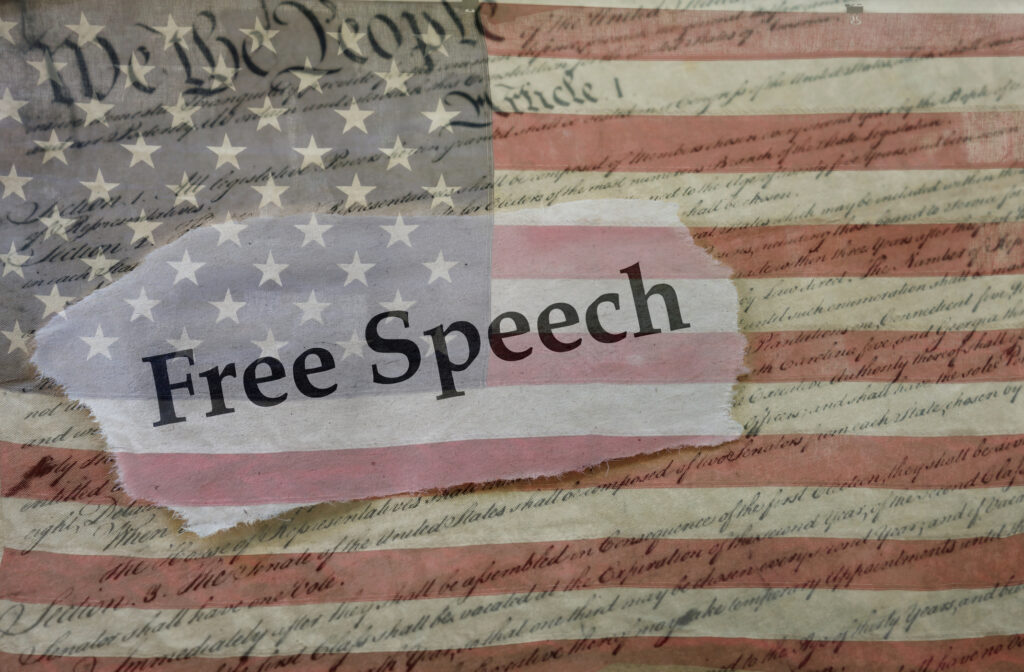Employment Law Report
Navigating “Free Speech” Claims by Employees

By: C. Tyson Gorman, contributing author Will Mathews, Wyatt Summer Associate
Freedom of speech does not equate to freedom from consequences, at least not when you are an employee for a private company. What an employee says or posts in the office or outside of it has the potential to lead to adverse effects, such as discipline or job loss. In the modern era, it tends to be what people post that gets them into trouble. Stories of individuals posting offensive or off-color content and having their employment terminated seem commonplace these days. Which begs the question, why do people keep doing it? Amongst a myriad of reasons, a large factor seems to be the improper assumption that the First Amendment will protect them from any ramifications. This, of course, is a misunderstanding. The First Amendment does not apply to protect private actors from their private employers. A private employer generally can let go an employee who espouses viewpoints the employer does not agree with.
There are some notable caveats to this general rule, such as when the employment at issue is subject to a collective bargaining agreement or other contract or written policy. The National Labor Relations Act (“NLRA”) creates another limited, but important, exception to this general rule. The NLRA protects an employee’s right to speak about such things as wages, working conditions, and the potential for collective bargaining without fear of backlash from the employer. If the speech by the employee is intended to advance a legitimate interest set out in the NLRA, then an employer will not be able to interfere with this speech. Other state and federal laws can also be applicable in certain circumstances, but will vary on a case-by-case basis.
The general rule is different for the government or quasi-government employee, who is entitled to somewhat more protection. The goal of the First Amendment is to place limits on the government’s ability to restrict free speech. The Supreme Court case of Pickering v. Board of Education details the test that is used to judge whether a government employee’s speech is protected from being punished by the government employer. The test asks whether the employee was speaking as a citizen or as an employee and whether he/she was speaking on matters of public interest. If the employee is speaking as a citizen on public matters, courts must then weigh the interest of the employee to comment on the public matter versus the interest of promoting efficient governmental work. The test is by no means clear cut, and as a result caution should be used both as an employee and employer in assessing cases of controversial postings or speech.
Private employees shouldn’t feel confident in relying on the First Amendment to protect them if they are speaking controversially or inappropriately. Government employees will not fare much better unless the subject speech is a matter of public interest/concern. The bottom line is that the First Amendment will, in most cases, prevent the government from imprisoning or fining a person for his/her speech, but it offers little to no legal protection from the wrath of an employer upset by an employee’s offensive social media posting.